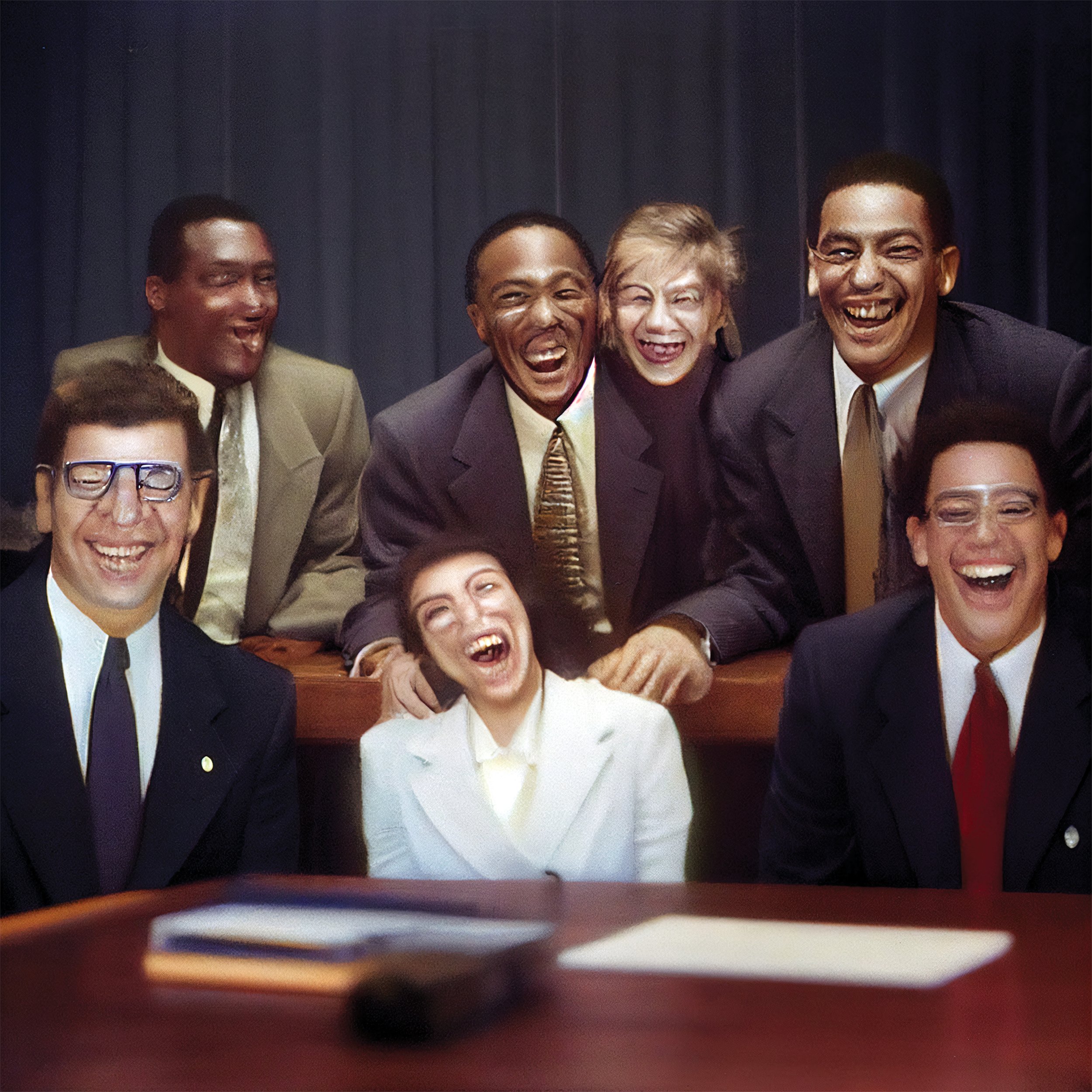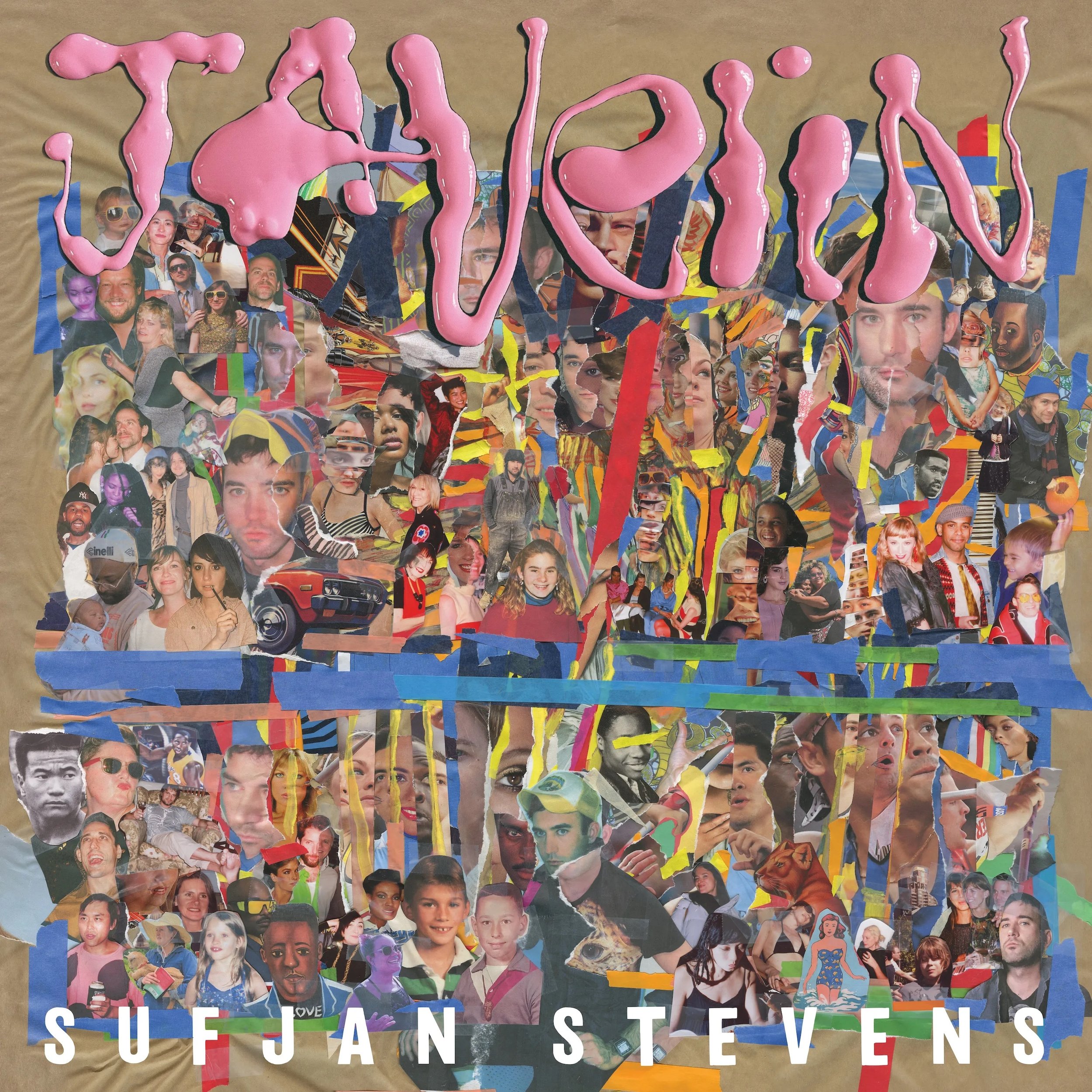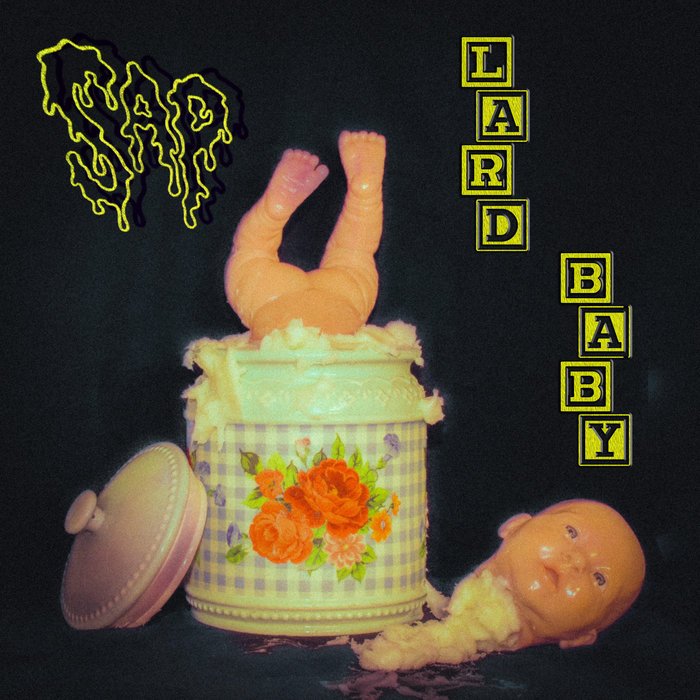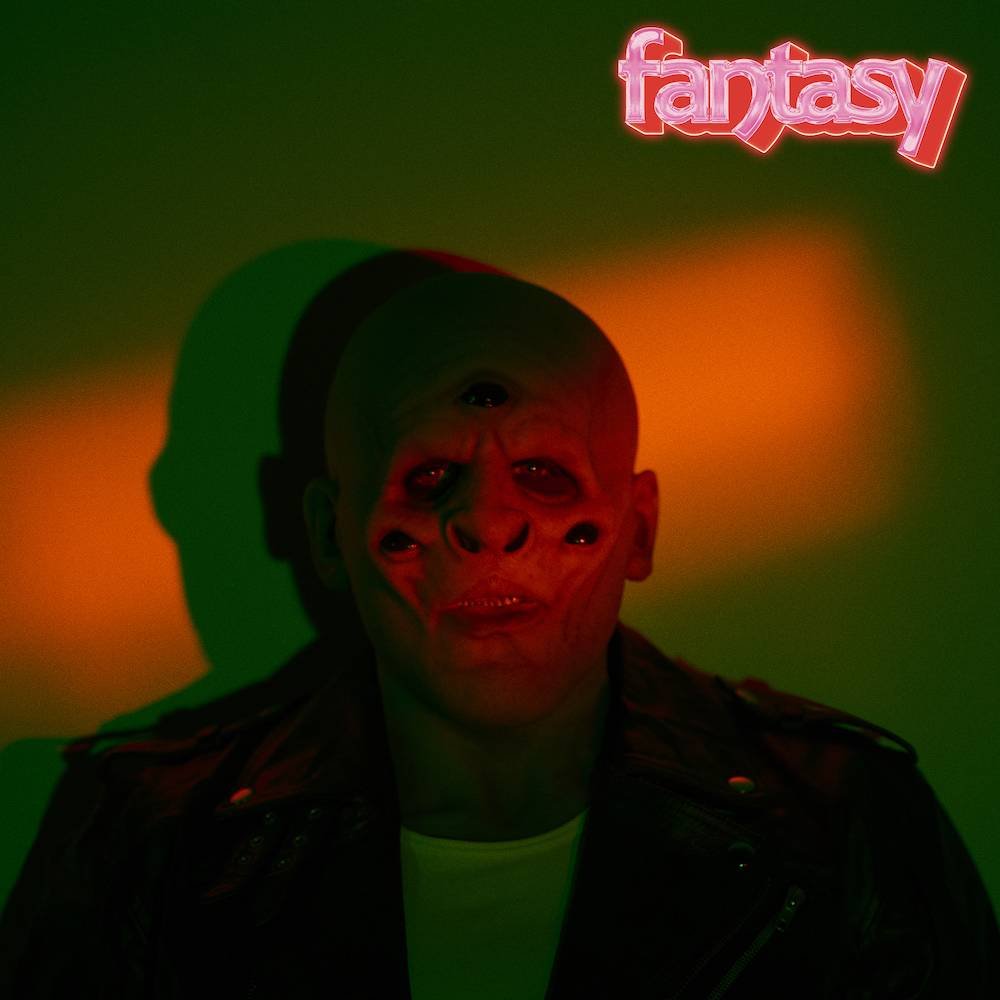Editors’ Picks for the Best Albums of 2023
Take a look at some of the best albums of the past year, hand-picked by the Afterglow Editorial Staff.
Written by Afterglow Editors
Illustration by Isabel Alvarez
This year has been the year of temptation and trepidation, the year of holding our breath and not letting things rest, and waking sleeping dogs. Look back on our editors’ picks for 2023’s best albums before letting yourself look forward into the new year.
Let’s Start Here. by Lil Yachty
Image courtesy of Quality Control Music/Motown Records
Don't be fooled by Let's Start Here.’s AI-generated album art — Lil Yachty's fifth studio album is his most organic yet. Having announced a new record with “all live instrumentation” last year, the ATL trap artist (born Miles McCollum) exceeded expectations with a 14-track psychedelic odyssey. Seven-minute opener “the BLACK seminole.” establishes Let’s Start Here. as an anomaly in McCollum's discography with its epic, Pink Floyd-esque instrumentals and Diana Gordon's soaring vocals. Calling himself “a sex symbol, the Black Seminole / African Rambo with more ammo,” the rapper likens himself to a group of formerly enslaved folks from the 18th and 19th centuries to symbolize his tenacity.
In true ’70s rockstar fashion, McCollum reminisces about star-crossed romances amid drug-fueled instrumentals. The standout “pRETTy” continues navigating new sonic and lyrical territory, as the rapper embraces his inner femininity by describing himself the way he would a muse: “Don't test me, I'm too sexy / I am so pretty.” The song experiments with his newfound psychedelic sound, accompanied by distorted vocalizations and a monologue from collaborator Fousheé.
A resounding “Ding!” signifies the start of “IVE OFFICIALLY LOST ViSiON!!!,” a song as chaotic as its typography. “I did way too much drugs, I've been swirlin’ and spinnin’,” McCollum's voice barely creeps above wailing guitars and shoegazey reverb. Laced within the drug trips, the rapper has astute realizations in the stream-of-consciousness “:(failure(:,” in which he reinterprets the so-called failures in his career as mere detours in his life. As the psychedelics sizzle out in favor of acoustics in closing track, “REACH THE SUNSHINE.,” the introspection continues. Though McCollum asserts that his “one goal” is “to reach the sunshine,” he “ballroom dance[s] with [his] demons” as he’s “tryna fill that hole” left by the disappearance of his soul. “I’m a bad man,” featured singer Daniel Caesar croons melancholically before a burst of synths transitions into a solemn piano ballad.
Although McCollum’s drug-fueled journey leads him to an uncomfortable realization about his character, Let’s Start Here. signifies a welcome departure from the rapper’s typical trap framework and a newfound maturity that results in one of the most memorable rock crossovers in recent memory. — C.S. Harper
javelin by sufjan stevens
Image courtesy of Asthmatic Kitty Records
Sufjan Stevens commonly toes the line between a Christian singer-songwriter and an artist undefined by the standard conventions of religiosity. His discography subverts expectations of worship music by laying out a sonic landscape highly different from typical Christian rock. His formulation of prayer seeks to exist exclusively for his satisfaction, filled with a sense of contemplation and a twinge of airy, melancholic synthesizing alongside experimental production. Enriched by metaphorical language and flowing with a tenderness that is paradoxically secular yet tenderly religious, Stevens can make sonic expressions indicative of his profound faith and intense feelings of grief and loneliness.
This year, Stevens released an arguable magnum opus to his discography, Javelin, an album that touches on his personal relationships, religiosity, and loneliness more profoundly than ever before. In an Instagram post announcing the release of Javelin, Stevens dedicated the album to his late lover, who died in April 2023. The record is a mix of the complex feelings when losing a loved one, the increasing isolation in facing the world alone, and the subsequent reach towards a higher power while facing contemplation of the self. The album remarkably shows his maturation while delving into the even deeper subject matter that comes with loving and losing.
The loss of someone deeply integral to his life leads to further visceral openness on tracks like "My Red Little Fox," undoubtedly dedicated to his own experience of loss. Stevens sings "Kiss me with the fire of gods" without any hints of sacrilegiousness. Then hits the listener with a crippling reality as he quietly mourns, "Say it out within / Without that funny little cough," a subtle hint of morality contrasted with the godliness of passion between two people.
The singer-songwriter concocts a perfect cocktail of quietude alongside synths, gospels, guitars, and bells. Javelin is undoubtedly a Sufjan Stevens record, profoundly distinguished in its sound and brevity while still managing to dive deeper than ever before into the curious mind of a master: hardship and the toll of life mature the sound, tiring Stevens yet making his sincere tenderness even more enthusiastic. Listening to Javelin feels like a journey to a reflective place, one where a person might debate how terrible it would be to "have and hold" someone dear. The indescribable pain is often undercut by a deep feeling of joy in the sanctity of living, something few artists manage to capture in their work. Stevens is one of the few with the unmistakable ability to tenderly move a listener to hold their life in their hands. — Rachel Joy Thomas
Mañana Será Bonito by Karol G
Image courtesy of Universal Music Latino
La Bichota herself, Karol G, released her fourth studio album, and it was nothing short of a testament to the singer’s resilience and grace as an artist and person. In Mañana Será Bonito, the Colombian reggaeton singer dances and drowns her sorrows through the trials and tribulations of her breakup, but beyond all, she believes in herself to make a beautiful tomorrow.
The album’s opening track, “MIENTRAS ME CURO DEL CORA,” begins with whistling to the tune of the unmistakable “Don’t Worry Be Happy” by Bobby McFerrin, setting the tone for the album’s relentless optimism in spite of hardships. In her path to piece her heart back together, she goes through a range of emotions in each song. Between the tearful ballad “GUCCI LOS PAÑOS,” the vengefully empowering slow song “TQG” with the iconic Shakira, and the perreo-inducing party anthem “OJOS FERRARI” with Justin Quiles and Angel Dior, she exemplifies the many faces of a force to be reckoned with, even during the worst of days.
Her most notable tracks come in the second half of the album, with “PROVENZA,” “AMARGURA,” and “MAÑANA SERÁ BONITO.” As the first single from the album, “PROVENZA” marked a shift from high energy songs she had released prior. Over pacing synth, steady drum beats, a soft snaking guitar, and beachy noises in “PROVENZA,” her voice floats as she professes wanting to get back with an old lover now that she is free from a bad relationship. Starting off with an echoey sample of the salsa song “La Cura” by Frankie Ruiz, Karol G masks the agony of seeing someone you once loved with someone else with intoxicatingly dancey drums in “AMARGURA.” The title track brings it all together at the end, where she honors her strength and holistic beauty as she repeatedly affirms “mañana será bonito” (“tomorrow will be beautiful”).
Karol G truly put her versatility as an artist in this album, especially by keeping up her sharp, defiant energy while letting her soft, sweet spirit write some songs here and there, and it paid off: with it becoming the first all Spanish album by a female artist to chart number one. In the last few years, the uncertainty of the future has been a theme to so many, but for Karol G, something she undeniably got right is that tomorrow will be beautiful. — Isabel Alvarez
Lard Baby by Sap
Image courtesy of Sap
Complete with notes of underlying fear, seductive anger, and pent-up rage, debut album Lard Baby by Austin rock band Sap brings a variety of emotional turmoils to the table.
A testament to their success, Sap’s first single boasts upwards of 140,000 streams on Spotify alone — so what better way to start the sonic journey than with the song that started it all? “Kiss My Kitty Cat” begins with singer and guitarist Evan Fundora’s tired sigh into the microphone, suggesting an “over it” attitude before uttering a single word. The following two tracks maintain the fast, loud theme of the album. “Trashman” tells a “day in the life”-esque story of an angry garbage man, followed by a narrative of discomfort juxtaposing attraction in the third track, “You Like That.” The song expresses anger in lust with continued hard and fast instrumentation, paired with admiring yet dissatisfied lyrics like “She floats, floats so softly / She’s a– a witch from hell.”
Tracks four and five are a bit slower and more apprehensive than the preceding songs, with intriguing titles “Hairy Jerry” and “Big Fat Macho Man,” drawing the listener in to hear the tales of two ostracized imaginary characters. The album’s slower midsection is interrupted by the impatient riff in track six, which starts with heavy picking by bassist Hank Barna. “Pigsty” is the epitome of rage with its unforgiving ambiance, adding a surprising element to the listening experience when followed by the faint, fearful tone of “Bulimia.”
“Mr. John” is the slowest song on the album, but the heavy tone of the guitars and the spiteful lyrics keep the energy at an all-time high. The album wraps up with “Pickle Song,” which differs from most of Lard Baby’s sound with an upbeat vocal tone and self-questioning lyrics like “Is all I can say / Something existential?” It is a step away from the band’s traditional grunge inclinations present throughout the rest of the album and perhaps a step into Sap’s developing style. The song ends abruptly with the instruments and vocals in unison, drums crashing as a symbol of the album’s conclusion.
Lard Baby takes listeners on a wild ride of emotions and sounds, but even among all the variety, one thing is for sure — this group is on their way to bigger and better things. — Anna Catherine Gonzalez
Something To Give Each Other by Troye Sivan
Image courtesy of EMI Australia
From its iconic, seductive music videos to its meme-sampled single "Got Me Started," Something To Give Each Other was a cultural moment of 2023 that solidified Troye Sivan’s role as a representative for the girls, gays, and chronically online. The Aussie pop star has always had a knack for dance-worthy hits, but his latest record brings an untapped vulnerability by traversing the pleasures and pains of being single with raw synths and explorations in autotune.
Opening with "Rush," an earworm that vied for the coveted “Song of the Summer” title, Sivan explores the brighter side of single life: not being tied down to one person. Sivan celebrates skin in the music video, "feel[ing] the rush" with every intricately choreographed touch. A hot, club-ready hit, "Rush" invites listeners to the noncommittal yet headfirst feeling that brands Something To Give Each Other.
Sivan dances through desperation on the next track, "What's The Time Where You Are?" Under pop pulses and sounds of nightlife, he wishes he were somewhere else. Asking the "International through line to [his] heart" general yet intimate questions as the time and weather act as means of care and connection. The pop star leans into more hopeless desire with the album highlight “One of Your Girls,” a delectably synthy track where Sivan finds himself enamored by a straight man, naively giving affection to someone who sees him as a secret outlet. In a vocoder-recorded chorus, the singer connotes his alienation after these unfulfilling, insatiable interactions by giving himself a robotic voice while pleading, “Give me a call if you ever get lonely / I’ll be like one of your girls or your homies.”
Throughout the record, Sivan searches for fulfillment, finding it briefly but powerfully in different situations and masking the troubles of queer connection with a synth-pop sweetness. A simple lyric from “Honey” beautifully captures Sivan’s fatal flaw that informs his artistry: “I see love in every space.” With sweaty club beats as intense and scattered as his feelings on Something To Give Each Other, the YouTuber-turned-pop-icon proves that he's "Still Got It." — Janie Bickerton
Did you know that there’s a tunnel under Ocean Blvd by Lana Del Rey
Image courtesy of Interscope
Perhaps the indie icon’s most personal album, Did you know that there’s a tunnel under ocean blvd entrusted Lana Del Rey’s heart to fans and critics alike. The diary-like record displays a captivating, helpless side to the idiosyncratic singer that paid off, becoming her most popular and critically acknowledged album. Accompanied by geographic shout-outs and religious allegories galore, she playfully reveals aspects of her familial life rather than focusing solely on male-centered relationships. However, that does not mean her romantic relationships are absent from her ninth studio release. As with every Lana Del Rey record, destructive relationships and intoxicating highs sneak their way into sonic conversations, but what differs is her unwavering tone and hopeful stability in songs like “Candy Necklace” and “Let The Light In.” Del Rey is now present and invested in messily disclosing tidbits of her past, backed by obedient piano and occasionally exciting experimental instrumentation.
In the numerous slow and stable piano ballads, the alternative singer recites her favorite grieving lullabies, hoping to send her audience into a long, introspective sleep. Thematically, gospel-esque opener “The Grants” might have been better suited as the album’s closer. However, the hymn-like entry discusses memories Del Rey cherishes enough to take to heaven (“My sister’s first-born child / I’m gonna take that too with me / My grandmother's last smile”), even if her beloveds do not reciprocate their significance. The vocal triumph of an opener offers an unpolished look into Del Rey’s inner fear of fading to nothing after her soul is gone, which stays throughout the album. Similarly, the Brooklyn native explores her instability regarding remembrance and self-esteem in the title track, “Did you know that there’s a tunnel under Ocean Blvd.” The stream-of-consciousness spoken-word poetry of “Fingertips” is, lyrically, Del Rey at her absolute most vulnerable. Touching on topics that she never explicitly stated in previous work, the 38-year-old tearfully reflects on the death of her uncle, her tumultuous relationship with her mother, personal struggles with mental health, and how she can maintain her own identity amid the turmoil.
However, “Peppers,” featuring Tommy Genesis, and the latter half of “A&W” instrumentally shake the listener awake with heavy house-influenced production, including multitudes of synth and vocal reverb. “Peppers” and the second part of “A&W” are lyrically much lighter, as Del Rey statically sing-raps on the enjoyment of being enthralled by exhibition and rants about the new grimy loser she has given a chance. The record feels like Del Rey must write down a thought before she loses it forever, and the listeners are lucky enough to witness the process. At her most honest and raw, the indie darling deserves every accolade and praise she receives for the aptly named Did you know that there’s a tunnel under Ocean Blvd. Listeners are forced to their knees by an unknown desire as their fingers instinctively intertwine and their heads lower in preparation to receive Pastor Del Rey’s sermon. — Sydney Meier
fantasy by m83
Image courtesy of M83 Recording Inc.
Fantasy, the ninth studio album by electro-rock group M83, lives up to its name by guiding listeners through a voyage of glowing arrangements and harmonies. The record’s steadfast, colorful pulse evokes a youthful sense of wonder and invitation for imagination.
Steady guitar plucks open Fantasy with the lyricless “Water Deep” before morphing into a glistening mosaic of synths and ambiance. The pace picks up in the radiant “Oceans Niagara,” with static rays beaming across the song’s breakneck rhythm, the perfect soundtrack for a trek across the stratosphere. Trickling chimes cascade through “Amnesia,” as frontman Anthony Gonzalez and keyboardist Kalea’s lush vocals blend into the chorus, “ Automated bliss / Binding all over the touch of your hand / Metal rapture / Four minutes with you.”
In true M83 fashion, the record has no shortage of drawn-out intros (“Deceiver”), cinematic sonic climaxes (“Earth to Sea”), and an inexplicable sense of nostalgia (“Sunny Boy”). The repetition and slow pacing of the vocals throughout the album allow listeners to focus on the ethereal and, at times, lively instrumentals, which is a blessing for such a production-heavy record. Fantasy flirts with shoegaze through its wash of swirling vocals (“Us and The Rest”) and looping reverb (“Sunny Boy Part 2”). “Radar, Far, Gone” grounds listeners back to Earth with mellow acoustic strings and velvety piano keys, still with a whisper of reverb that transcends the poignant track as it closes out.
The album’s title track, however, is a melodic dose of danceable beats that builds with electronic warps and accents around a pulsing bassline. The track is an expedition of lush production and cosmic accents that meld together as the band repeatedly chants “Shout it / Fantasy.” The album closes with “Dismemberment Bureau,” a seven-minute epic of wavering electric strings and piling synths that erupt into an apex of instrumentation. Distorted vocals tease the first half of the track as the band members sing, “An illusion on color television / What a good way to learn / Good way to learn about us / And the heirs of our land.” In line with its name, Fantasy is a soundscape of electro-addled arrangements and imaginative lyrics that makes the record feel nothing short of a fever dream. — Miranda Garza
Unreal Unearth by Hozier
Image courtesy of Columbia Records
Hozier’s Unreal Unearth is a gritty, poetic record. Starting with the echoey ambiance of “De Selby (Part 1)” and a further descent into darkness with “De Selby (Part 2),” each track exists in a different circle of hell as depicted in Dante’s “Inferno.” The Irish singer-songwriter tackles storytelling with breathtaking intricacy through his operatic hums and creamy belts of narration of narration. The confessional “Francesca” represents hell’s lustful circle, and exists harmoniously alongside the similarly romantic “I, Carrion,” which is a tear-jerking ballad of forbidden love. Crashing drums exclaim Hozier’s stubborn admiration despite the lovers’ fateful damnation: “I would do it again / If I could hold you for a minute.” Similar to 2014’s “Take Me To Church” from his self-titled debut, he rejects the holy in the name of love, which deeply resonates with queer fans.
“Eat Your Young” is gluttonous beyond its obvious connotations. The backing chorales, intense, rising violin-heavy instrumentals, and Hozier’s sultry vocalizations spoil Unreal Unearth listeners. Similarly, the haunting, heretical “Son of Nyx” is an immersive treasure. Listening to Hozier’s distant, siren-like vocals ringing over soulful minor piano chords and a harrowing string chorus feels like discovering an ancient hypnosis spell.
The album’s narrative does exist outside of its infernal metaphors. “Butchered Tongue” is a somber, gripping tale of historical colonization. The poetic musician softly sings about the true tragedies of ethnic cleansing: “The ears were chopped from young men if the pitch cap didn’t kill them / They are buried without scalp in the shattered bedrock of our home.” Empathy pulses throughout the album, blurring the line that divides the stereotypical evil of hell from the biblical goodness of heaven. In the detail-focused “Abstract (Psychopomp),” Hozier reflects on the wonder of life by referencing a being who comforts animals as they die and go to the afterlife. He mixes personal experience with fictional references to the eighth circle of hell, where punishment entails splitting and wounding souls. . After all the innocent suffering, Hozier declares, “All my love and terror balanced there between those eyes / See how it shines.”
The chill-inducing “First Light” is a pristine symbol of ascent, as described in Dante’s “Inferno.” Hozier belts, “You filling my cup / The sun coming up / Like I lived my whole life / Before the first light.” A soprano gospel choir harmonizes, singing “some bright morning comes” as victorious strings and punching drums erupt. It is fitting for such a boisterous revelation to serve as the final track of this religiously imbued album. By implementing a slew of ancient literature references into his polished, intimate, and fearless lyrics, Hozier has created a novel of an album. Its deep lore, alluring vocals, and hypnotizing orchestrations allow listeners to eternally dig into the haunting, hellish world of Unreal Unearth. — Heather Stewart
honorable mentions
The Record by boygenius
Raven by Kelela
No Ordinary Crown by Will Johnson
When Horses Would Run by Being Dead
Teeth by Die Spitz
Do Divas Go To Heaven? by SEWA









